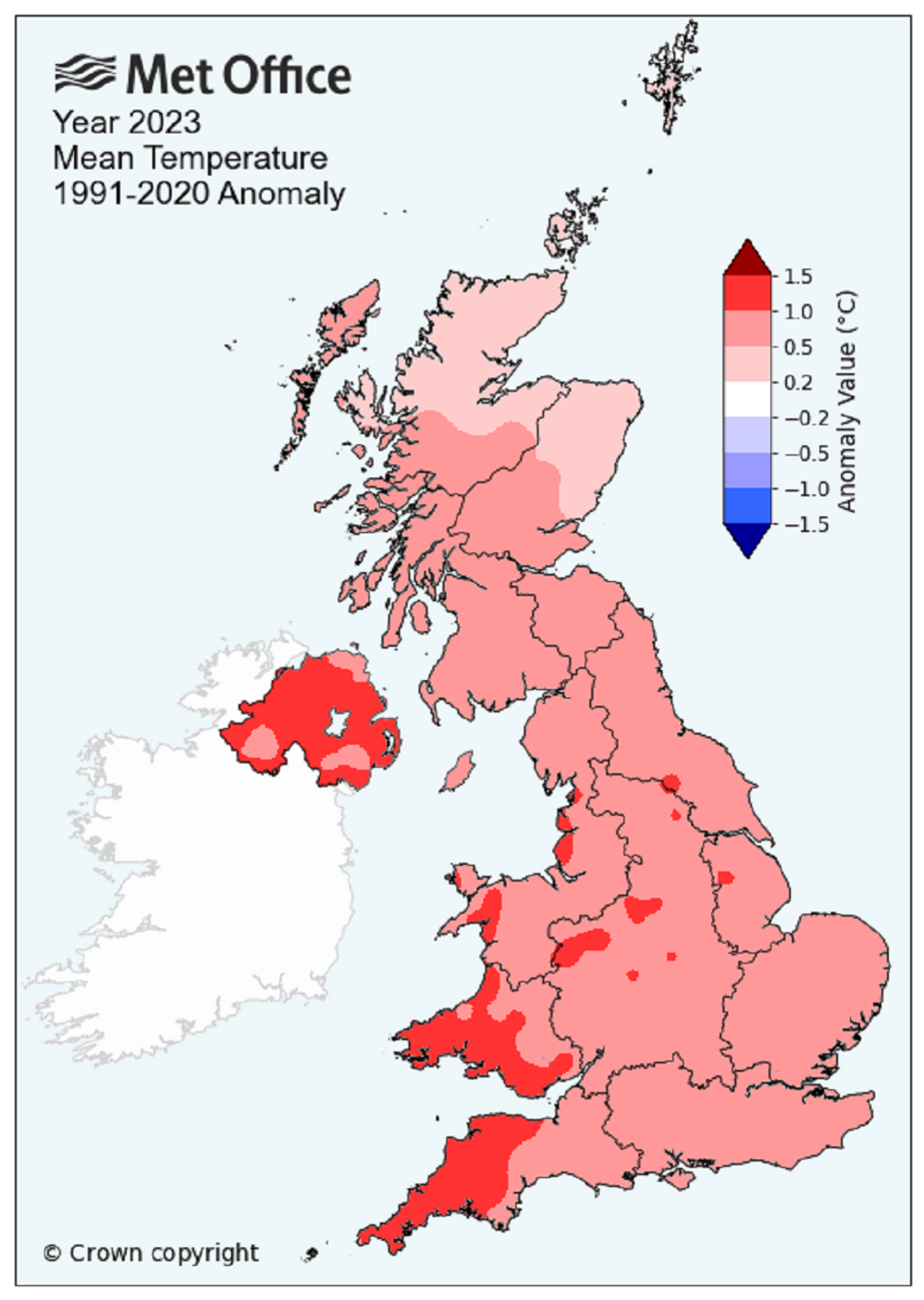Climate change: Northern Ireland had warmest year on record in 2023
- Published
- comments

June started with a very settled period of high pressure, bringing warm and dry conditions, as seen here in Broughshane, County Antrim
Northern Ireland has experienced its warmest year on record, with an average temperature of 10.17C in 2023 according to the Met Office, external.
The previous record was 9.83C set in 2022.
This is a sign of the changing climate of the region, with eight out of the top 10 warmest years all being recorded this century.
Last year also saw NI's warmest June on record, with an average daily temperature of 16C.
Records go back to 1884.
The Met Office said 2023 was the second warmest on record for the UK overall - just behind 2022 - and it was clear that "climate change is influencing UK temperature records over the long term".
"While our climate will remain variable, with periods of cold and wet weather, what we have observed over recent decades is a number of high temperature records tumbling," senior scientist Mike Kendon said.
"We expect this pattern to continue as our climate continues to change in the coming years as a result of human-induced climate change."

In terms of rainfall, 2023 was the third wettest on record for NI, with 1,399mm of rain.
The wettest year was back in 1872, when there was 1,416mm of rain in the parts of Ireland which later became Northern Ireland.


Having more than a century's worth of records for weather means scientists can comfortably say climate change is affecting us here and now.
That makes adaptation and mitigation all the more imperative - changing how we live to work with the effects of climate change that cannot be stopped, and cutting our emissions immediately to reduce future impacts insofar as possible.
Some of that comes down to our choices as individuals - travel and food, for example - and some requires political leadership and decision-making to help us make those changes.
But this is the new reality for us and future generations.

In December, it was reported that the warmest year on record had been recorded by the Republic of Ireland's weather service Met Éireann.
The Irish Climate Report 2023 created by the service showed the average annual temperature rose above 11C (51.8F) for the first time, beating the previous warmest year of 2022.
It was also a year of extremes, with the warmest June and the wettest March and July also being recorded.

Limavady was also bathed in sunshine in June
The figures follow an EU climate change report in November which said it was "virtually certain" that 2023 would be the warmest year on record, globally.
That prediction followed "exceptional" high October temperatures.
Global average air temperatures were 0.4C warmer than the previous high of October 2019, according to the EU's climate change service.
Related topics
- Published8 November 2023

- Published30 June 2023

- Published27 December 2023
